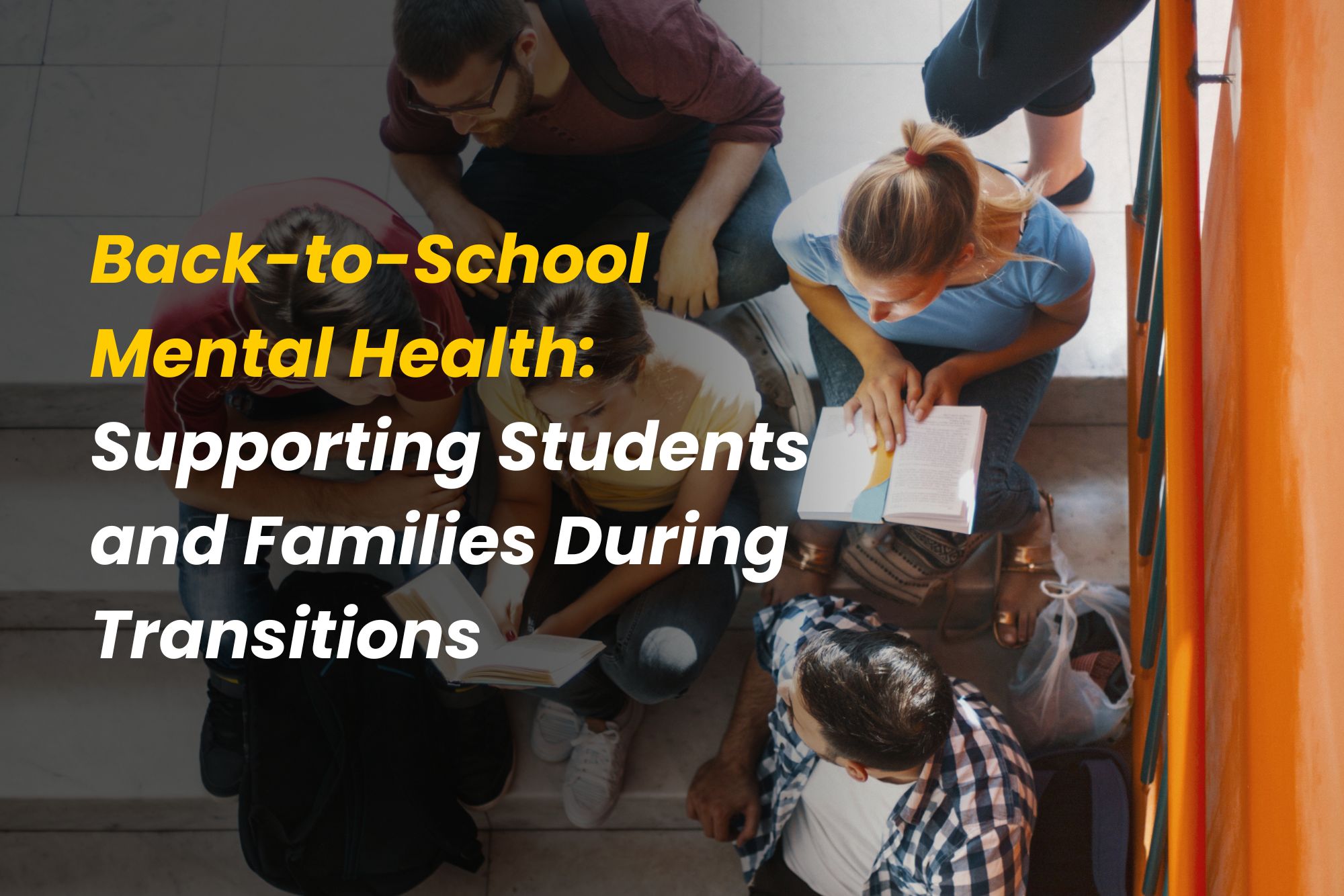
Back-to-School Mental Health: Supporting Students and Families During Transitions
Introduction
As August rolls in, families across the country prepare for the back-to-school season. This time of year often brings a mix of excitement and anxiety for students and parents alike. While the start of a new school year can be an opportunity for growth and learning, it can also present significant mental health challenges. Students may face academic pressures, social anxiety, or the stress of adapting to a new environment. For parents, the shift in routine and the concern for their children’s well-being can also be overwhelming.
Understanding the Challenges
- Academic Pressure: With a new school year comes new classes, assignments, and sometimes, increased academic expectations. Students might feel pressure to perform well, leading to anxiety and stress. It’s crucial to acknowledge that these feelings are normal and provide strategies to cope.
- Social Dynamics: Whether transitioning to a new school or advancing to a new grade level, students often face the challenge of navigating new social environments. Making new friends, dealing with peer pressure, or adjusting to changes in their social circles can be daunting.
- Routine Changes: Both students and parents have to adjust to new routines that can disrupt the balance they’ve maintained over the summer. This can lead to stress, sleep disturbances, and overall anxiety.
Supporting Students’ Mental Health
- Open Communication: Encourage open lines of communication between parents, teachers, and students. Creating a safe space for students to express their feelings about the upcoming school year can alleviate some of their anxiety. Parents can start conversations by asking open-ended questions like, “How are you feeling about going back to school?”
- Setting Realistic Expectations: It’s important to set realistic academic and social expectations for students. Encouraging effort and progress rather than perfection can reduce the pressure they feel. Remind students that it’s okay to make mistakes and that learning is a process.
- Promoting Healthy Routines: Establishing a consistent routine helps students feel more secure and manage their time effectively. Encourage regular sleep schedules, healthy eating, and time management practices to balance schoolwork with leisure activities.
- Encouraging Social Connections: Help students build and maintain positive relationships with peers. This might involve joining clubs, participating in sports, or simply encouraging them to reach out to friends.
- Mindfulness and Relaxation Techniques: Introduce mindfulness practices, such as deep breathing exercises or meditation, to help students manage anxiety and maintain focus. These practices can be easily integrated into their daily routine, providing them with tools to manage stress effectively.
Supporting Parents’ Mental Health
- Self-Care for Parents: Remind parents that taking care of their own mental health is crucial in supporting their children. Encourage them to engage in self-care practices, such as regular exercise, hobbies, and maintaining social connections.
- Educating on Signs of Distress: Parents should be aware of signs of distress in their children, such as changes in behavior, sleep patterns, or appetite. Understanding these signs can help parents intervene early and seek appropriate support.
- Building a Support Network: Encourage parents to connect with other parents or join support groups. Sharing experiences and solutions can provide reassurance and practical advice.
Professional Support and Resources
- School Counselors and Behavioral Health Professionals: Encourage families to utilize resources like school counselors, who can provide additional support for students facing challenges. Behavioral health professionals can offer therapeutic strategies tailored to individual needs.
- Community Resources: Many communities offer programs and workshops on mental health, stress management, and parenting strategies. These resources can provide valuable support during the back-to-school transition.
Conclusion
The back-to-school season is a time of change and adaptation for both students and parents. By acknowledging the mental health challenges associated with this transition and proactively seeking support and strategies, families can navigate this period more smoothly. Remember, maintaining open communication, setting realistic expectations, and utilizing available resources can significantly impact overall well-being during this time.
At ABS Behavioral Health, we are here to support families through these transitions with professional guidance and tailored programs. Our experts are dedicated to helping students and parents manage stress, build resilience, and achieve a healthy balance during the school year. Reach out to us for more information on how we can help you and your family thrive.
Schedule your appointment today with ABS Behavioral Health and start your journey to lasting recovery. Click here to make your appointment: Make an Appointment or call us at 718-871-4593
Related Posts
Understanding Impulsivity: Recognizing and Managing Your Triggers
By ABS Behavioral Health We all make quick decisions sometimes — but when...
Celebrating Thanksgiving: A Time to Reflect on Gratitude and Mental Health
As families across the United States gather to celebrate Thanksgiving, we at ABS...


